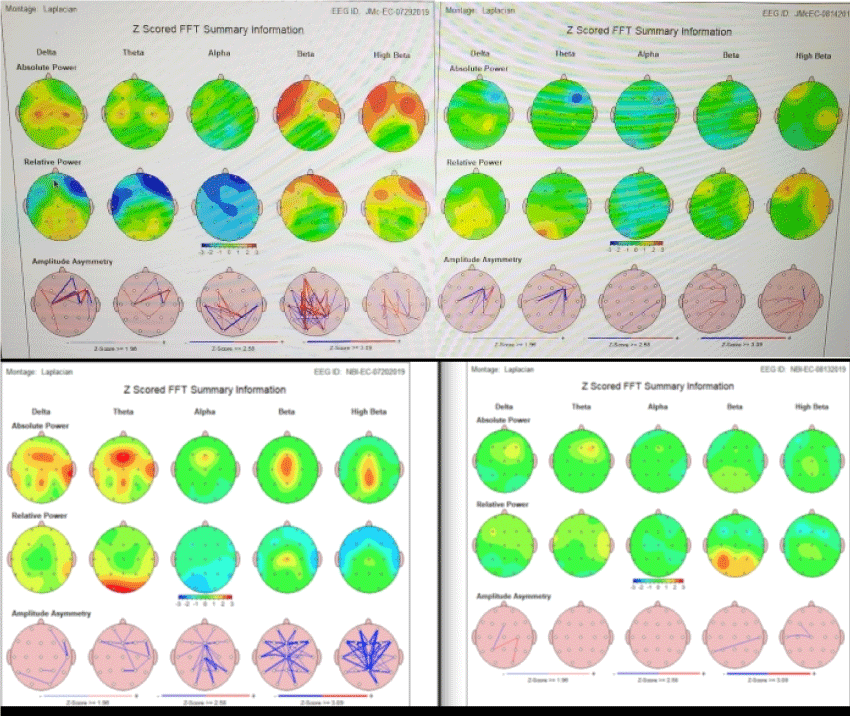Do I really need therapy? I can usually handle my problems.
Therapy helps patients in not only self reflection, but also encourages self reliance outside my chamber. And, this is what seeds the root of self-confidence as well. The painful emotional beliefs and reservations that restrict the individuals from meeting their goals, or following their passion, can be overpowered when the person starts to accept the reality, and let go of the past. I believe that the patient and the psychologist can work together to find a problem, and I practically and actively approach that method.
What is neurofeedback therapy?
Neurofeedback therapy is biofeedback for the brain. Training with neurofeedback improves cognitive function, attention, mood, anxiety, sleep, and behavior and also improves symptoms associated with pain,seizures,stroke,ptsd and many more conditons. Neurofeedback is an alternative to medication and has minimal, if any side effects.
It helps stabilize the brain and increases ones level of functioning. Keep in mind, as a Neurofeedback Clinician, I will work with you to treat symptoms not diagnosis. I follow a symptom based philosophy and place attention on individual symptomology rather than treating labels. The human brain is extremely complex and no two brains are alike. I am not completely against medication but will only consider it as a last resort when all other modalities have been exhausted.
Based on my expierience, the best model for alleviating symptoms and improving daily functioning and quality of life is a combination of neurofeedback and psychotherapy. Individuals are assessed and together we form a customized approach/plan of action with realistic goals implemented. I only work with indivuals that are serious about beginning the journey of recovery. I am not your friend and have no interest in being your friend. I am here to prepare you and be your advocate on your road to recovery. My role is to walk along side you for a short time and equip you with the most effective tools to address the areas that you are seeking to resolve. I also work with individuals who are not symptomatic and are wanting to have the cognitive and phisiological edge in the corporate world,sports and performance and peak performance in general. Neurofeedback is all about utilizing the resources available and making specific resources available to enhance physical,psychological,emotional and spiritual areas of your life.
What Is Neurofeedback? How Brain Training Can Benefit Kids, Families, and Adults
How does the neurofeedback process work?
Noninvasive sensors are placed on the head that act like stethoscopes. They read the brainwaves which are then displayed on a computer screen allowing both the practitioner and the patient to see them. This information or feedback is then used to train the brain via a computer game that rewards a patient when they are improving.
How long are the sessions?
Normally, appointment time ranges from 50 to 60 minutes with neurofeedback taking approximately 30 to 40 minutes. When it is clinically indicated, we utilized various other technologies and tools that can enhance and assist our clients with achieving self-regulation.
When do you stop the training?
The goal is to decrease training as the symptoms lessen. Remember however, it is important to reinforce newly learned patterns via practice prior to stopping treatment. Stopping too soon can lead to relapse. Optimally, stopping treatment normally is a joint decision thoroughly discussed with the patient.
How can neurofeedback therapy help my issues or symptoms?
Neurofeedback is able to assess the functioning of the brain as well as where it is not functioning properly and which specific area that needs to be addressed. The areas of dysregulation are pointed out and then the process of regulation and balance begins. Brain training consists of a form of operant conditioning. The brain is rewarded when it performs toward regulation and balance through the use of video games. The more the brain is rewarded the more it will desire to repeat the action. The process is involuntary so it requies minimal effort in terms of cognitive processes. Many addiction centers have integrated neurofeedback into their treatment plans and have had an extremely high success rate. Thr curative(verses treatment) nature of neurofeedback makes it very appealing to individuals because once you have completed training there is no reason to ever repeat the process. Neurofeedback not only balances and regulates the brain but also trains the brain to balance and regulate itself. An individual must be willing to commit to three training sessions per week with an average of 30-40 minutes per session.




